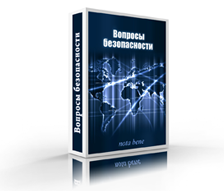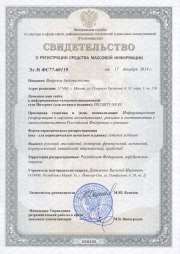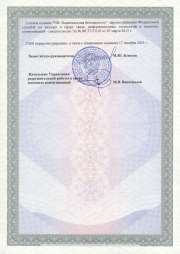MAIN PAGE
> Journal "Security Issues"
> Rubric "Rapid response and tactics"
|
Rapid response and tactics |
|
Starovoitov V.G. - Ensuring economic security of the municipalities: best practices
|
|
pp. 1-10
|
DOI: 10.25136/2409-7543.2021.4.36552
Abstract: The subject of this research is the best practices of ensuring economic security of municipalities of the Russian Federation. The object of this research is the process of ensuring economic security of the municipalities. The author meticulously examines the state of economic security of municipalities of the Russian Federation. Special attention is given to monotowns, whose economy is dominated by a single industry or company. It is underlined that the critical state of backbone enterprises usually leads to deterioration of economic security and emergence of crisis phenomena in socioeconomic sphere of the municipalities. The article presents practical experience of restoring the role of the Russian textile factory during bankruptcy proceedings. Rendering support to the backbone enterprises in overcoming crisis situations, the municipalities simultaneously address the issues of ensuring their economic security and socioeconomic development. The novelty of this research consists in the statement that restoration of the activity of backbone enterprises and ensuring economic security in the Russian municipalities is possible, even in the conditions of bankruptcy proceedings of the backbone enterprises. Ensuring the economic security of Russian municipalities is achieved by active support of the backbone enterprises by local communities; implementation of modern management methods in assessment of the state of economic objects, initiation of measures for overcoming crisis phenomena in the economy of municipalities; development of constructive principles as the foundation for supporting the backbone enterprises and ensuring economic security of the municipality. Positive experience acquired by the municipality “Kirzhachsky District of Vladimir Region” in ensuring its economic security by supporting and restoring the role of the backbone enterprise of the district remains relevant, and can be implemented by other Russian municipalities in their management practice.

|
Gaboev N.V. - Separate aspects of the work of operational units in the course of search for signals of corruption manifestations in the road sector, using unified information database in the area of procurement in the Russian Federation
|
|
pp. 19-26
|
DOI: 10.25136/2409-7543.2019.3.29551
Abstract: The subject of this research is the separate aspects of the work of operational units in the course of search for signals of corruption manifestations in the road sector, using unified information database in the area of procurement in the Russian Federation. The author describes the search activity of operational units in the struggle against corruption manifestations in the road sector, as well as examines its specificity, practical importance and efficiency using web resources. Particular attention is dedicated to application of the unified information database in the area of procurement. Methodological framework contains the general scientific method of dialectical materialism, methods of formal logics and description, generalization, classification, and comparative-legal method. The main conclusions consist in theoretical substantiation of practical importance and efficiency of conducting search activity by operational units in the struggle against corruption crimes in the road sector, using online web resources, namely the unified information database in the area of procurement.

|
Maslyakov V.V., Barachevskii Y.E., Pavlova O.N., Polikarpov D.A., Pimenov A.V., Proshin A.G., Pimenova A.A. - Analysis of the results of rendering first aid in case of maxillofacial injuries suffered in road traffic accidents
|
|
pp. 20-27
|
DOI: 10.25136/2409-7543.2021.2.35438
Abstract: For achieving the set goal, the author conducted a retrospective research. The study involved the victims of road traffic accidents aged from 18 to 70 years, who suffered maxillofacial injuries; total of 150 victims over the period from 2010 to 2020. The selected topic is a pressing medical and social problem. It is observed that the number of close and open injuries received in road traffic accidents is roughly the same. However, the open injuries qualified as moderate and severe were determined in 45 (30%) cases. The data analysis indicates that in 30.7% of cases, first aid was rendered by bystanders and/or relatives of the victims, who do not have the necessary competence and knowledge for providing such aid; in another 19.3% of cases, first aid was rendered by operational services personnel (traffic police, fire and rescue divisions), who have the necessary knowledge and skills. The absence of necessary skills for rendering first aid to the victims of road traffic accident with such type of injury explains high percentage of mistakes, which amounted to 41.3%. At the same time, the operational services personnel demonstrated good results in rendering first aid; no mistakes were detected. The analysis of the common mistakes indicates the application of physical efforts in the process of removing victims from the vehicle; no special means while the victim's head was not fixated, which causes additional injuries. In six (4.0%) cases, the spoor condition of the victims was mistaken with comatose.

|
Semenyuk A. - Arms embargo as a factor of the Libyan crisis
|
|
pp. 35-43
|
DOI: 10.7256/2409-7543.2017.2.22059
Abstract: The research subject is arms embargo imposed on Libya in 2011. The author analyzes the consequences of the UN Security Council resolutions 1970 and 1973, which had introduced embargo on arms supply to Libya. Special attention is given to the work of the UN institutions in charge of control over sanctions compliance. The author demonstrates the arms embargo’s impact on the armed conflict in Libya in 2011, and the situation with the proliferation of Libyan weapons beyond the country. The author considers such aspects of the topic as the impact of arms embargo on the political crisis in Libya after Gaddafi’s deposition and its role in the 2014-2015 military conflict. The main research method is the principle of historicism, which helps analyze the role of arms embargo in the political crisis in Libya at its different stages in 2011 – 2016. The scientific novelty of the study consists in the consideration of the reasons of toughening or easing of arms embargo against Libya in 2012 – 2016, and the political consequences of these decisions of the UN Security Council. Besides, the author notes the recent tendencies in weapons proliferation in Libya and the reasons of embargo’s ineffectiveness.

|
Panenkov A.A. - Directions for the fight with organized resistance of the members of criminal formations at the stage of pre-trial proeedings in the counter-terrorist operation period (on the materials of the Chechen Republic)
|
|
pp. 45-87
|
DOI: 10.7256/2306-0417.2013.6.7132
Abstract: In this article the author analyzes the directions of fight with the organized resistance of members of the criminal formations at hte stage of of pre-trial proeedings in the counter-terrorist operation period (on the materials of the Chechen Republic). The author provides some results of his scientific studies in the sphere of fighting against terrorism financing. The author also makes specific proposals on optimization of guarantees of security of the investigators of the Investigation Departments of the Investigation Committee of Russia.
|
Stepanenko V.S. - Environmental Policy in the Sphere of Waste Treatment in the EU and Russia
|
|
pp. 48-102
|
Abstract: Intensive development of the environmental law starting from last 70's shows how important the environmental protection issues have grown. Back in XX century scientists, researchers and the society were mostl concerned about the protection of water and forest resources, animals and air pollution but today the threat spectrum has been changed. It does mean the aforesaid problems have been solved though. Unfortunately, there is still a long way to go, but at least solutions have been developed and associated measures have been discussed including legal measures too. Today's priorities include the climate protection, waste and hazardous substances treatment, fight against environmental crime, first of all, organized crime and corruption as well as development of the environmental policy that would comply with the conditions of the gobalising world. Twenty years ago very little was spoken of the environmental policy and its trends in our country. The decisive point was when the Environmental Conference was held in Rio de Janeiro. However, noot all elements of the environmental policy have been modernized, developed or implemented. There are still gaps in the environmental law, too. This can be clearly seen when we analyze the environmental policy and laws in the sphere of waste treatment. Therefore, it would make sense to view the contents and meaning of waste treatment, to evaluate how well its elements are developed and how topical its issue are and how efficient methods and measures are compared to the experience of foreign states. The author of the article also analyzes the structure and definition of environmental policy from the point of comparative law in the European Union, EU member states and the Russian Federation. The author in detail describes the economic, envirommental and socio-psychological factors influencing the development and implementation of environmental policy.

|
Tatarinov R.A. - Regarding Some Aspects of Activity Performed by Internal Affairs Security Departments of the Penitentiary System for Corruption Suppression
|
|
pp. 52-59
|
DOI: 10.25136/2409-7543.2018.1.25453
Abstract: The article is devoted to certain issues that may arise in the process of operational search activity performed by internal affairs security departments of Russia's penitentiary system for detection, prevention, suprresion and disclosure of corruption as well as identification of persons involved. The rationale of the research is caused by the constructin of a constitutional democracy state and Russia's anticorruption policy at this stage of Russia's development. Corruption in state agencies including penitentiary agencies undermines their authority and compromises its public image and creates a threat for the national security of Russia in general. To write this research article, the author has used such methods as analysis and synthesis, deduction and induction, generalisation, observation, description, comparison, and classificatino of applicable operational search, criminal and penal laws and regulations of Russia and particular types of corruption crimes that can be met in the penitentiary system of Russia. Based on the analysis of corruption risks, the author describes types and categories of corruption crimes that are most frequently committed by the penitentiary system officers as well as operational search methods to detect and prevent them. The author also focuses on the issues of anti-corruption education and prevention, causes and conditions of corruption crimes in the penitentiary system. The author emphasizes the need to increase the level of the legal awareness of officers and workers of the department dealing with bribery. To achieve a positive result and increase the efficiency of suppression of corruption crimes, the author offers a list of measures to be undertaken by officers of the internal affairs security department of Russia's penitentiary system.

|
Silaeva N.A. - Normative legal guarantees of prevention of crimes against political system of the Russian Federation.
|
|
pp. 88-111
|
DOI: 10.7256/2306-0417.2013.2.692
Abstract: The article is devoted to the legal aspects of prevention of crimes against the political system of Russia. The author analyzed the Criminal Code of the Russian Federation, the legislation of the Russian Federation on anti-criminal measures, including measures against extremism and terrorism, as well as some legislative norms of the Republic of Tatarstan on prevention of crimes against the political system of the Russian Federation. The author also analyzed the legislation of the Russian Federation on national security, she developed the draft of legal norm and made some suggestions on the improvement of legislation in order to protect the political system of the Russian Federation against criminal encroachments. In this article the author points out that in order to make fighting crimes against the political system of Russia more efficient, there is need to the improve the norms of other branches of law, as well as criminal law.

|
Khamidullin R.S. - Ensuring national security in the field of drug trafficking using information and telecommunication technologies
|
|
pp. 95-105
|
DOI: 10.25136/2409-7543.2023.2.37603
EDN: MYPBAN
Abstract: Based on scientific sources and practical experience, the article examines the issues of ensuring national security in the field of drug trafficking using IT technologies. The subject of the study is some features of the identification, disclosure and investigation of crimes related to illicit trafficking in narcotics and psychotropic substances carried out using IT technologies and the Internet. The object of the study is the social relations arising in the process of ensuring national security during the fight against drug crime on the territory of the Russian Federation. The author examines in detail such aspects of the topic as the specifics of the detection and disclosure of crimes committed in the field of drug trafficking, as well as the fixation and seizure of digital traces of crime. Special attention is paid to the use of modern technologies in countering drug trafficking using IT technologies. The main conclusions of the study are: ensuring national security in the field of drug trafficking using IT technologies is impossible without qualified employees of the relevant departments of the Ministry of Internal Affairs of Russia and providing them with modern technical means of detecting, fixing and removing digital evidentiary information; the need to identify and disseminate positive experience in combating illicit trafficking of narcotics and psychotropic substances; development and implementation of effective methods and algorithms of actions of law enforcement officers in various operational and investigative situations in practical activities to combat drug trafficking; improvement of the regulatory framework governing the organization of national security in the field of trafficking in narcotics and psychotropic substances.

|
Panenkov A.A. - Preliminary Analysis of Law Enforcement Authorities' and Intelligent Agencies' Response to Terrorist-Oriented Crime in 2012 and 2013 Prognosis for Russia. Results of Researches 2010-2012 on Fighting Terrorism Financing in the Republic of Ingushetia (Conclusions and Suggestions
|
|
pp. 153-253
|
DOI: 10.7256/2306-0417.2013.1.326
Abstract: In his article the author offers he preliminary analysis of law enforcement' and intelligent agencies' response to terrorist-oriented crime in 2012 and shares the 2013 prognosis for Russia. The author also shares the results of researches conducted in 2010-2012 on fighting terrorism financing in the Republic of Ingushetia, makes conclusions and concrete suggestions on how to better fight terrorism and terrorism financing.
|






